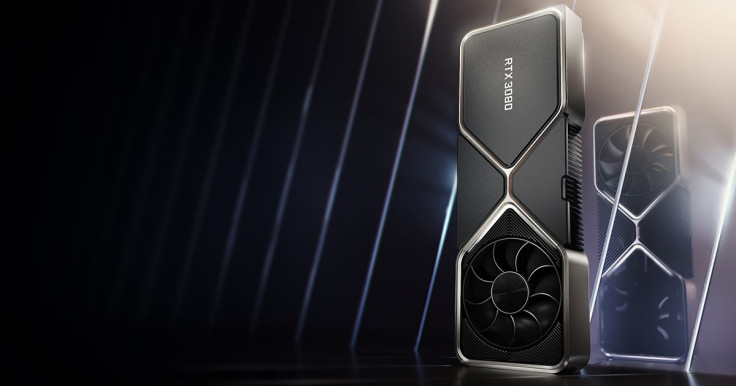After teasing the next-gen Ampere GPUs for weeks, Nvidia has finally announced the new GeForce RTX 3000 series of graphics cards. Nvidia's RTX 3000 series GPUs are based on new Ampere architecture, which is designed to succeed the current flagship RTX 2080 and RTX 2080Ti GPUs in terms of performance and ray tracing support.
Nvidia's next-gen flagship, the GeForce RTX 3080, is promised to deliver up to twice the performance of the RTX 2080, and is even faster than RTX 2080Ti. The RTX 3080 packs in 10GB of GDDR6X VRAM and will launch on September 17 with a $699 price tag.
The RTX 3080 sports a new design that is built to minimize thermals. According to Nvidia's CEO Jensen Huang, the new thermal design will increase airflow by 55 percent, which should overcome the thermal constraints on the current RTX 2080 GPU. The RTX 3080 also comes with a dual-fan setup, which promises efficient cooling and a quieter experience.
The RTX 3000 series GPUs will use the new 12-pin connector instead of the traditional dual eight-pin connectors. Nvidia will also provide an adapter that will be compatible with the eight-pin cables when buying the Founders Edition Cards. The company's decision to go with a 12-pin connector was to allow more space on the PCB for adding more components and enabling efficient cooling.
Alongside the flagship RTX 3080, Nvidia also announced the RTX 3070, which is priced at $499. According to Huang, the RTX 3070 is more powerful than the previous RTX 2080, at a very low cost. This easily puts the RTX 3070 well above the powerful 1080Ti and 1080 GPUs for 1440p gaming.
Just like the RTX 3080, the RTX 3070 will also use a dual-fan cooling setup and Nvidia promises improved thermals and quieter operations. The RTX 3070 will also launch on September 17.
Finally, the tech giant pulled out the monstrous RTX 3090, a GPU that is packed with a beefy 24GB of GDDR6X VRAM. According to Nvidia, the RTX 3090 is capable of running most high-end games at 8K and 60FPS. The RTX 3090 is priced at an eye-watering $1,499. However, it's still less expensive than the previous generation's RTX Titan that carried an insane $2,499 price tag at launch.

















